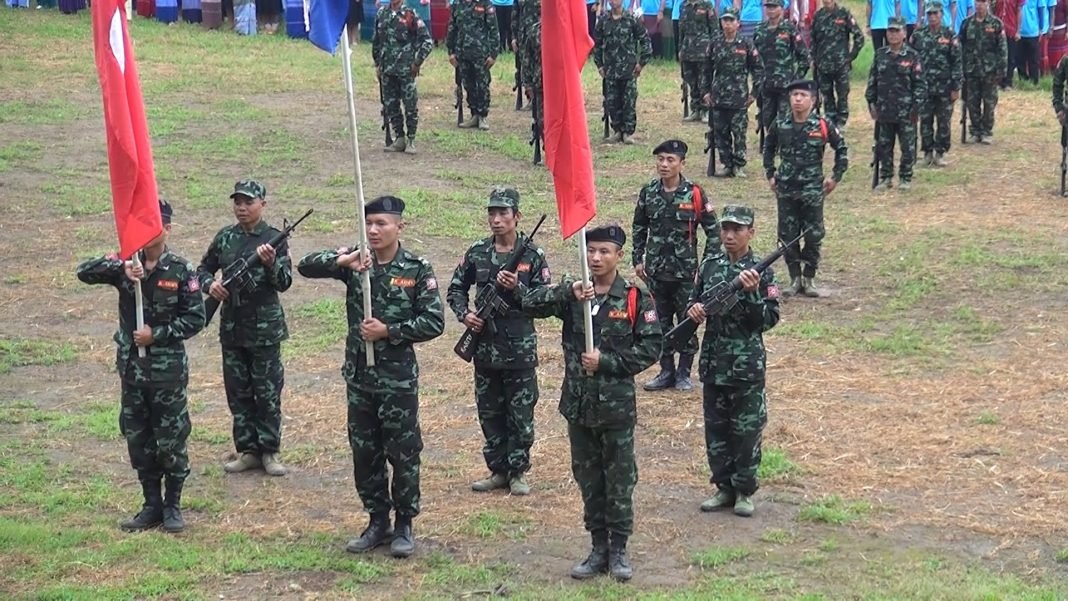By MAW OO MYAR / KANTARAWADDY TIMES
Ethnic armed organizations (EAOs) in Karenni (Kayah) State have expressed dissatisfaction with the National League for Democracy-led (NLD) peace process during the administration’s concluding five-year term.
The NLD won a majority of seats in Burma’s general election on November 8 and will begin a new term this year.
Karenni National People’s Liberation Front (KNPLF) central committee member Aung Than Myint said the root causes of Burma’s unrest—ethnic demands—have yet to be addressed.
“We want peace, but we haven’t worked on the important things necessary for peace,” he told Kantarawaddy Times. “Burma is a multiethnic country. To restore peace in the country, the government needs to know what ethnic people really want. The government needs to know the voices of ethnic youth and women. If the government knew these voices, I think it would be easier to solve the problems and get peace.”
The KNPLF split from the Karenni National Progressive Party (KNPP) in 1978 and signed a ceasefire agreement with Burma’s military government in May of 1994. The KNPLF transformed into a Border Guard Force (BGF) in 2009.
Khu Mee Reh, who is in charge of the KNPP’s Loikaw liaison office, said that government’s prioritization of getting EAOs to sign the Nationwide Ceasefire Agreement (NCA) has contributed to the lack of progress in the peace process.
“The government prioritized discussions with the KNPP regarding the NCA signing. I didn’t see the government reach milestones in the peace process during the 2015-2020 period,” he said of the NLD administration’s term. “Nothing has changed through their political dialogue,” he added.
The KNPP signed a state-level ceasefire agreement with the government in 2012 and has not signed the NCA.
Political analyst Kyaw Htin Aung said that federal issues must take precedence in the NLD’s next term.
“Even though Kayah State and the KNPP agreed to hold monthly meetings, they actually met once every three to four months. In these meetings, they generally discussed regional development issues rather than political issues. I don’t think the state government understood the peace process,” he told Kantarawaddy Times.
“In my opinion, they were not brave enough to take responsibility and initiative. They didn’t work enough for the peace process.”
Despite criticisms of the government’s previous approach, representatives of the ruling NLD cited enforcing party policy and adhering to the current peace process structure as their strategies moving forward.
NLD’s MP-elect for Demoso Township Khin Than Nu said that she would make national reconciliation a priority.
“The NLD has a federal policy in its party policy. If I have a chance, I will try my best for national reconciliation,” she said.
Another MP-elect for the NLD, Nang Htwe Thu, who will be representing Hpasawng Township, said she was going to try to get more EAOs on board with the peace process.
“We will continue to discuss with ethnic armed organizations. We will try to get non-NCA EAOs to join in the peace process. We will discuss with all stakeholders,” she said.
Eight EAOs signed the NCA with the military-led government in 2015. Two EAOs signed the NCA with the NLD government in 2018.


